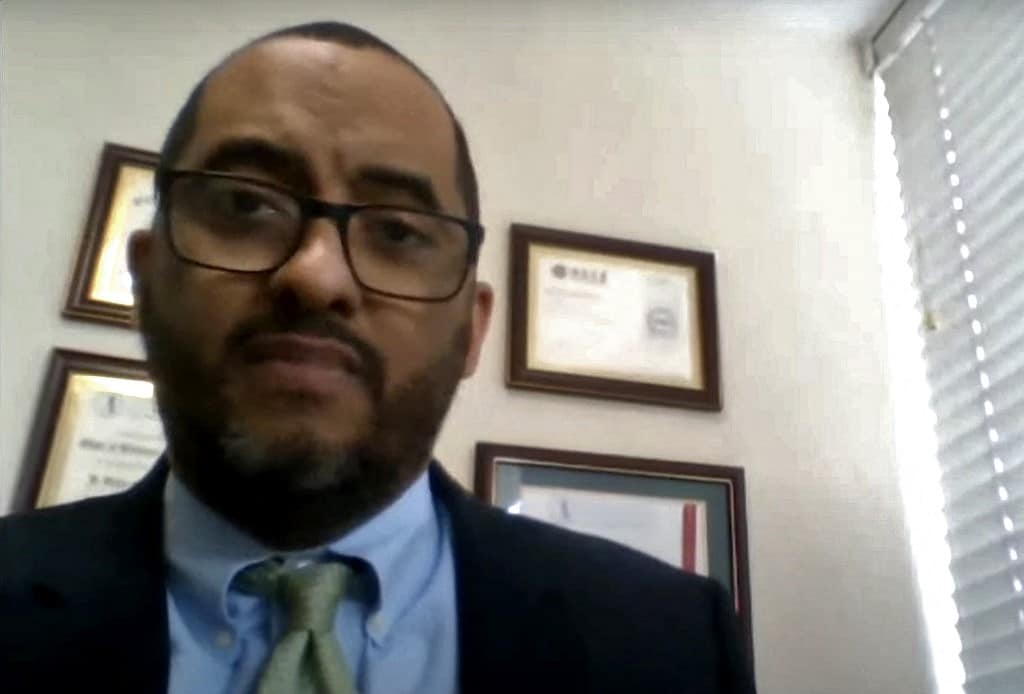“I got tired of so much cruelty,” says former Nicaraguan ambassador who sought asylum in U.S.
He called Daniel Ortega’s government a “dictatorship” while he was Nicaragua’s representative to the OAS. Separated from his post after the incident, the now former ambassador Arturo McFields reflects by telephone from the United States on the situation in his country.
At a March session of the Permanent Council of the Organization of American States (OAS) McFields denounced the lack of freedoms in Nicaragua, under the presidency since 2007 of former guerrilla Ortega and the vice presidency of Rosario Murillo, his wife.
Protests against Ortega broke out on April 18, 2018 and lasted for several months. Suppressed by the security forces, they left 355 reported deaths, dozens of prisoners and thousands of exiles, according to human rights organizations. It was the beginning of a political crisis that endures.
In November 2021 Ortega, 76, leader of the leftist Sandinista Front, won a fourth consecutive term in office, with his rivals and opponents detained – in “inhumane” conditions according to McFields – accused of plotting against the government.
Q: How is Nicaragua four years after the protests?
A: While crime and drug trafficking are on the rise, the police are persecuting, harassing religious people, journalists, singer-songwriters and the few remaining human rights defenders. It is irrational.
But every death has its resurrection and I think Nicaragua is going to have its Sunday of Glory.
Q: What do you think the government’s next steps will be?
A: That they dare to imprison religious leaders. That could be a new stage of repression. Last year the president said that in any other country the religious [critics of the government] would be in jail (…) He labeled them as terrorists.
Q: Are you also saying this because of the expulsion of the apostolic nuncio in March?
A: This year the threats have continued and we know that later they are carried out. I want to believe that there is going to be hope, the people are tired of so much repression, the same government officials, the police, the military.
Q: Do you see any collective demonstration?
A: That tiredness at some point is going to materialize in some way in a manifestation of something different. How do I know? I am the living proof. I was inside and I got tired. I got tired of so much cruelty, so much mistreatment.
Repression is a boomerang. When you increase repression and cruelty, it strips you as a dictator, and the rhetoric of the empire and the CIA and all those things that are usually said fall down and you show that you are a dictator without much charisma.
This exaggerated repression (…) is revealing how grotesque the dictatorship can be and the violence with which it acts.
Q: You spoke of discontent within the government. Who are you referring to?
The government does not allow people to reveal such categorical positions. I am giving you the environment and the interactions one has at the level of high officials in which one sees the comments, hears the reactions. One feels and says: I am not the only one.
The government manages to placate these nonconformities with the three P’s: Prison, perks and persuasion.
Persuasion is not being used much, there are no perks because there is no Venezuelan cooperation, so what is used is prison. Officials are stripped of their passports and this has been reinforced by what has happened in my case.
Q: Who is in charge, Ortega or Murillo?
A: On a day-to-day basis Rosario is the one who is more in charge. But when there are decisions of extreme importance, the president has the last word.
Q: For example, the decision to remove Nicaragua from the OAS (announced at the end of 2021)?
A: Those are decisions where he is consulted. But on a day-to-day basis, in my case my communication was direct with her [Murillo].
Q: What is your status in the United States?
We are in the transition to asylum. In my country I have been labeled as a traitor to the homeland (…) and if I return, a cell awaits me in El Chipote [a police prison where opponents are held].
Q: What do you expect from the Biden administration?
A: We ask that it extend temporary protected status for Nicaraguans who are fleeing. Allow them to earn an honest living, because the “migra” [immigration authority] can return them to a regime of terror. We have a situation of institutional catastrophe in Nicaragua. This is worse than a tsunami.
by Moises AVILA






